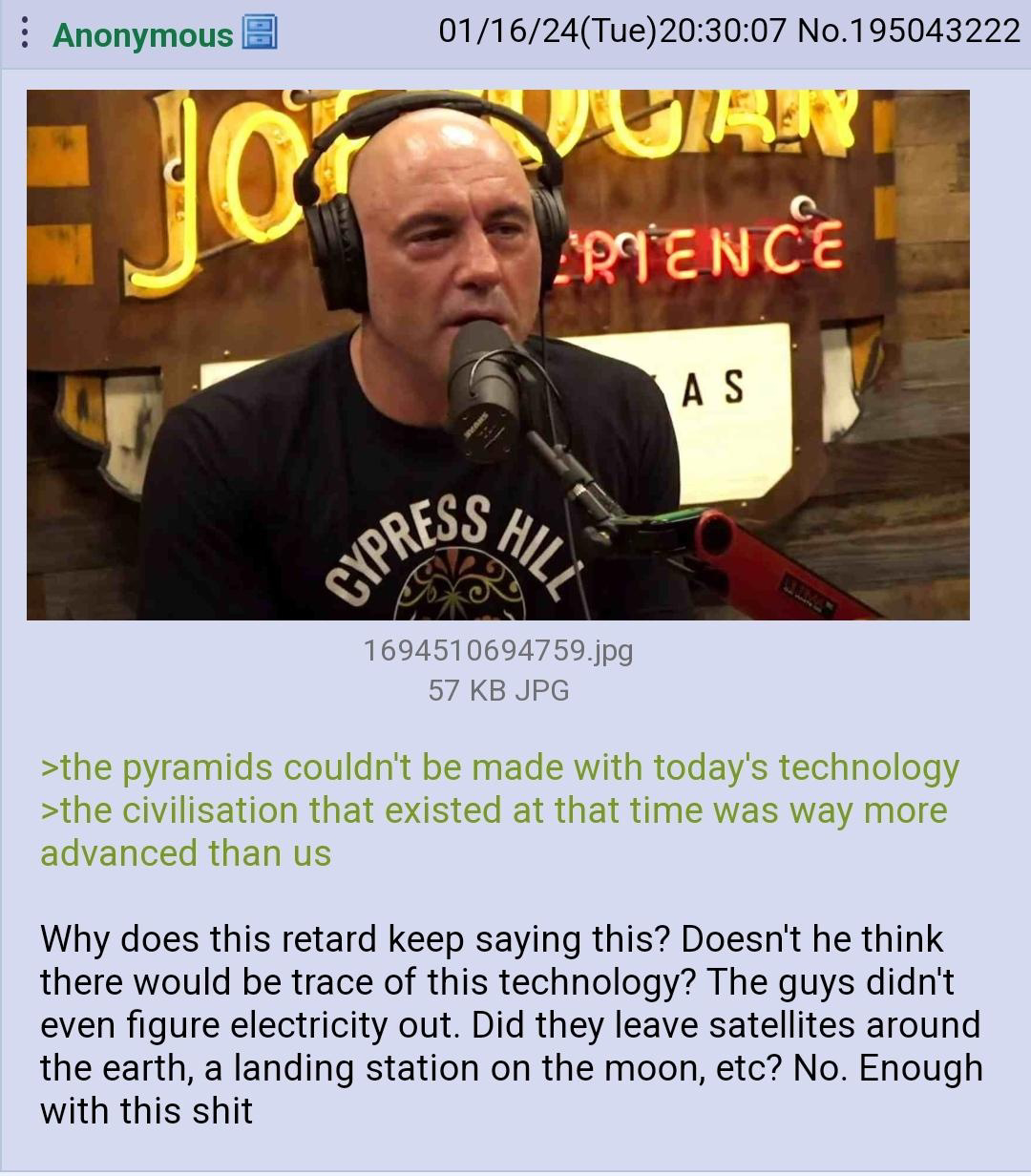this post was submitted on 19 Feb 2024
931 points (97.3% liked)
Greentext
4753 readers
1191 users here now
This is a place to share greentexts and witness the confounding life of Anon. If you're new to the Greentext community, think of it as a sort of zoo with Anon as the main attraction.
Be warned:
- Anon is often crazy.
- Anon is often depressed.
- Anon frequently shares thoughts that are immature, offensive, or incomprehensible.
If you find yourself getting angry (or god forbid, agreeing) with something Anon has said, you might be doing it wrong.
founded 1 year ago
MODERATORS
you are viewing a single comment's thread
view the rest of the comments
view the rest of the comments

Interesting. That makes sense. Since all the farming there was centered around the Nile, probably all the farmers were affected when the Nile flooded. That means you'd otherwise have 90% of the population out of work, waiting for the flooding to subside. I'm sure many of them would have preferred to just relax while they waited, probably the Pharaoh would demand they continued work on his pyramid instead.
The Nile is an incredibly convenient river. Long, relatively straight, few rapids or falls, reliable wind to sail up river, reliable current to sail down river, and annual floods that make fertilizing and irrigating the river banks trivial by the standards of the day.
What kills me is the degree to which industrialization hadn't been invented yet. I've seen excavations of the kitchens that were used to make bread to feed the workers on the pyramids, and it was the same setup as a household kitchen just dozens of them side by side. They didn't scale that process, they just did it a lot in parallel.